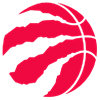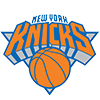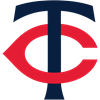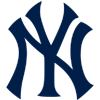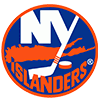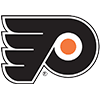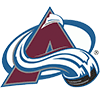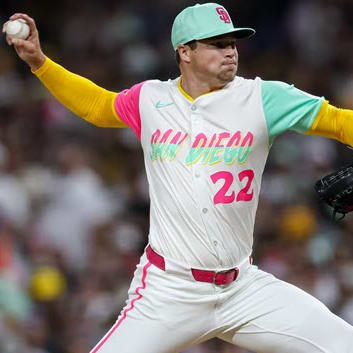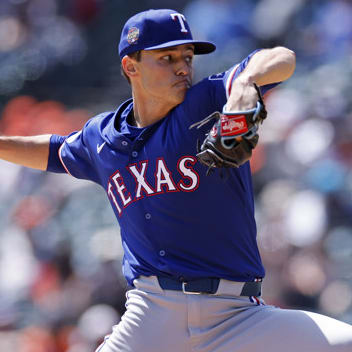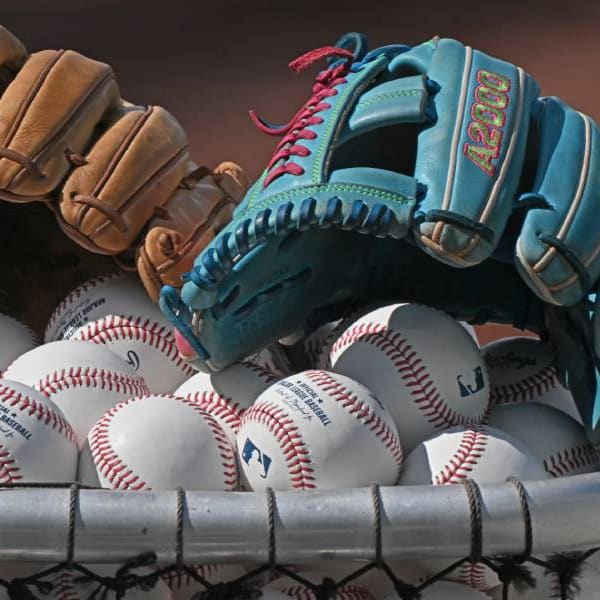I can finally consider the baseball season over now that I have wrapped up all of my activities at First Pitch Arizona in the metro Phoenix area this weekend. It was great to see some of my fellow RotoWire brethren in person again and even better to interact with some of you subscribers and podcast fans who came up to discuss previous advice or just to say thanks for putting them on certain players.
This was my 16th year attending the events out here and I continue to learn so much every season from those who put hard work into presentations for the conference. A particular hot topic this year was pitching and the increase in injuries, as hitting injuries have returned to pre-pandemic levels. Some panelists and people were fading certain pitchers based on injury history or current situation, while others were focused on the potential of the pitcher and more comfortable with imagining the positive possibilities rather than the negative ones. Risk mitigation is a vital part of fantasy baseball, and there's no doubt it's becoming increasingly frustrating to deal with pitching injuries. It would be simply amazing if injury recovery timelines were predictable and each pitcher hit the same benchmark dates for returning from injury and resuming pre-injury effectiveness, but the fact remains that mileage does vary from pitcher to pitcher and we need to remember that as we sit down and begin our offseason drafting or draft planning.
I have a few thoughts on this
I can finally consider the baseball season over now that I have wrapped up all of my activities at First Pitch Arizona in the metro Phoenix area this weekend. It was great to see some of my fellow RotoWire brethren in person again and even better to interact with some of you subscribers and podcast fans who came up to discuss previous advice or just to say thanks for putting them on certain players.
This was my 16th year attending the events out here and I continue to learn so much every season from those who put hard work into presentations for the conference. A particular hot topic this year was pitching and the increase in injuries, as hitting injuries have returned to pre-pandemic levels. Some panelists and people were fading certain pitchers based on injury history or current situation, while others were focused on the potential of the pitcher and more comfortable with imagining the positive possibilities rather than the negative ones. Risk mitigation is a vital part of fantasy baseball, and there's no doubt it's becoming increasingly frustrating to deal with pitching injuries. It would be simply amazing if injury recovery timelines were predictable and each pitcher hit the same benchmark dates for returning from injury and resuming pre-injury effectiveness, but the fact remains that mileage does vary from pitcher to pitcher and we need to remember that as we sit down and begin our offseason drafting or draft planning.
I have a few thoughts on this matter, but I want to start by reviewing two higher profile names and how they were being drafted in 2024: Walker Buehler and Shane Baz. The table below shows what we knew about each pitcher during the 2024 draft season and where those pitchers were taken in the high stakes Main Event leagues (15 team), RotoWire Online Championship leagues (12 team), as well as 50-round Draft and Hold formats (15 team):
| PITCHER | TJ Surgery Date | Main Event ADP | RotoWire OC ADP | Draft Champions |
| Shane Baz | 9/28/2022 | 349 | 288 | 155 |
| Walker Buehler | 8/23/2022 | 203 | 183 | 237 |
Those in Main Event leagues taking Baz at that price would see names like Steven Matz, Taj Bradley and Nick Martinez go in the next five rounds. The names taken in the five rounds after Buehler include Yusei Kikuchi, Gerrit Cole and Seth Lugo. The market clearly favored the Dodger hurler given what was seen from him over the 650 innings of major-league work prior to his surgery. Baz, meanwhile, had all of 40 innings of major-league work before his procedure. In short, it was pretty easy to defend taking one pitcher so much earlier than the other despite similar surgery dates and similar raw stuff. However, the power of hindsight allows us to see how things played out:
| PITCHER | TJ Return Date | Recovery Months | IP | W | ERA | WHIP |
| Shane Baz | 7/5/2024 | 21 | 79.1 | 4 | 3.06 | 1.06 |
| Walker Buehler | 5/6/2024 | 20 | 75.1 | 1 | 5.38 | 1.55 |
I bring this up as we look at some of the names with similar surgery dates in the later months of 2023 and where those names have gone in the early drafts that we have seen so far this winter:
| PITCHER | TJ Surgery Date | Early ADP |
| Felix Bautista | 10/9/2023 | 61 |
| Shane McClanahan | 8/21/2023 | 116 |
| Sandy Alcantara | 10/6/2023 | 164 |
| Liam Hendriks | 8/2/2023 | 272 |
| Andrew Painter | 7/25/2023 | 289 |
McClanahan, like Buehler, had a solid pre-injury body of work with just over 400 innings of major-league work before his elbow gave out for the second time in his pitching career. Alcantara also has a previous major-league resume and his ADP currently has him going before 2024 success stories such as Seth Lugo and Sean Manaea. I am not advocating to take Painter earlier because he has such limited professional work. It's highly unlikely Philadelphia pushes him to the workload necessary to justify taking him (or even stashing him for a majority of the season) at his current ADP. The difference between the draft interest in Bautista and Hendriks is interesting because both have the track record but Hendriks is an afterthought. Hendriks has the current penalty of not having the clear-cut closer role in Boston and also ended the season with a setback, while Bautista has a clear path to resuming his former role as long as his body is ready to resume those activities.
We have become somewhat spoiled in how quickly pitchers have returned from Tommy John surgery in recent seasons. Jon Roegele's database tracks all the data for us and shows us when pitchers have surgery, when they return and how many months of recovery time were required. The table below shows all major-league pitchers who had the surgery in 2023 and how long it took them to return to a major-league mound:
| Pitcher | Surgery | Return | Months |
| Antonio Senzatela | 7/26/2023 | 9/16/2024 | 14 |
| Matthew Boyd | 6/28/2023 | 8/13/2024 | 14 |
| Jacob deGrom | 6/12/2023 | 9/13/2024 | 15 |
| Tyler Mahle | 5/22/2023 | 8/6/2024 | 15 |
| Jose Quijada | 5/17/2023 | 7/24/2024 | 14 |
| German Marquez | 5/12/2023 | 7/14/2024 | 14 |
| Robbie Ray | 5/3/2023 | 7/24/2024 | 15 |
| Jeffrey Springs | 5/1/2023 | 7/30/2024 | 15 |
| Kris Bubic | 4/28/2023 | 7/7/2024 | 14 |
| Lucas Gilbreath | 3/14/2023 | 8/16/2024 | 17 |
There are hints of success on that list, such as deGrom touching 99 mph or Robbie Ray resuming his high volume of strikeouts (and homers!), but the list was overall not as much of a fantasy factor as expected in 2024. The table below shows pitchers we expect to see return in 2025 and when they are currently being taken in early drafts:
| PITCHER | TJ Surgery Date | Early ADP |
| Eury Perez | 4/8/2024 | 445 |
| Shane Bieber | 4/12/2024 | 459 |
| Sawyer Gipson-Long | 4/22/2024 | 690 |
| Robert Stephenson | 4/30/2024 | 621 |
| Matt Brash | 5/8/2024 | 699 |
| Emmet Sheehan | 5/15/2024 | 714 |
| John Means | 6/3/2024 | 735 |
| Jose Urquidy | 6/5/2024 | ND |
| Cristian Javier | 6/6/2024 | 691 |
| Alek Manoah | 6/17/2024 | ND |
| Kyle Bradish | 6/19/2024 | ND |
If we put the 14-15 month timeline on all of these pitchers, which is the best case scenario for Tommy John surgery, that would mean the first four names could pitch as early as sometime in June. A return to the mound does not guarantee any level of success, but there are still some pitchers being taken in 50-round draft and holds that may be doing nothing but holding a clipboard this season. Perhaps we're getting almost too comfortable with pitchers returning from major surgery as the medical industry continues to make advances in surgery and rehab methods.
The Internal Brace Procedure (IBP) is the latest evolution in repairing the Ulnar Collateral Ligament as 48 different baseball players have had the surgery since Seth Maness first had the procedure in 2016. The procedure has promise because it can help a pitcher avoid a full ligament replacement by reinforcing the damaged ligament or it can offer further stability to a UCL surgery. IBPs have been shown to reduce the time a pitcher resumes pitching in the majors by a third, which is rather exciting for pitchers. Fantasy managers appear even more excited since they have thus far taken Spencer Strider as early as 70th overall with an ADP of 86 through 13 drafts. The data that we have on pitchers returning from IBPs is limited, but what we do have should give those looking to acquire Strider some serious pause:
| Player | Surgery | Return | Recovery Months | IP in Return Season |
| Drew Rasmussen | 7/24/2023 | 8/7/2024 | 12 | 36 |
| Nick Anderson | 10/1/2021 | 4/1/2023 | 18 | 38 |
| Zach Britton | 9/8/2021 | 9/24/2022 | 13 | 0.2 |
| Bryan Woo | 4/1/2021 | 6/6/2022 | 14 | 57 |
| Rich Hill | 10/1/2019 | 7/29/2020 | 10 | 38.2 |
| Jesse Hahn | 8/1/2018 | 9/5/2019 | 13 | 28.2 |
| Seth Maness | 8/16/2016 | 5/13/2017 | 9 | 56.2 |
It goes without saying, but Strider would have to pitch to a 1968 Bob Gibson level to justify taking him as high as he is currently going if he is only able to pitch 60 innings in 2025. Strider could become the first pitcher to work even 60 innings the season after his IBP because this is an impossibly small sample size but it is all we have to work with at this time. Woo was the first young starter to have the procedure, and he had it back in college so we don't even have an example of a young major-league starting pitcher to reference. Simply put, there are far too many names with better conditions to leverage than the possibility of Strider returning and working triple-digit innings this season, assuming he shows little to no rust from the long layoff.
In short, it would be awesome if we could treat fantasy pitching like video games and shut off the injury settings or give everyone 100 health grades, but the reality of the marketplace is a third of pitchers are drafted to spend time on your injured list and you need to take a long, hard look at the data available to decide what the probabilities are for those pitchers to match your (or the industry's) level of optimism.








